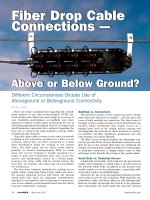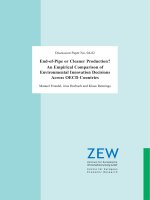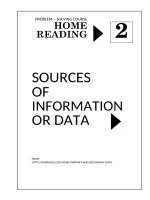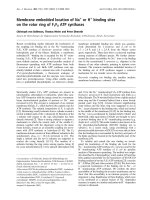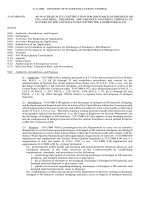Adverb clause of concession or supposition
Bạn đang xem bản rút gọn của tài liệu. Xem và tải ngay bản đầy đủ của tài liệu tại đây (12.68 KB, 1 trang )
Adverb clause of concession or supposition
Adverb clauses of concession are introduced by subordinating conjunctions
although, though, even though,
even if, while
and
whereas
.
Though and although
Both these words can be used as conjunctions with the same meaning.
Though
is more common.
Though
and
although
mean ‘in spite of the fact that’, ‘even if’ and similar ideas.
Though
he is poor, he is always neatly dressed.
Though
you hate me, I will always serve you faithfully.
I would like to go out
although
it is raining.
Even if and even though
Even
is not used as a conjunction, but we can use
even if
and
even though
to connect two clauses.
I will go
even if
you forbid me to.
I enjoyed the film
even though
I had a headache.
The men managed to survive
even though
they had nothing to eat or drink.
Even if
I fail, I will try again and again until I succeed.
While and whereas
While
can mean although.
While
I admire your courage, I think you ought not to go on this dangerous journey.
While
it is true that I have some lands and houses, I do not have liquid cash to invest in industry.
Whereas
John had more enemies than friends, his brother was extremely popular.
In a special structure,
as
is sometimes used instead of
though
.
Young as
he is, he occupies a responsible position in the firm. (= Though he is young, he occupies a
responsible position in the firm.)
Be first to know when grammar rules change! Sign up to our newsletter here: englishgrammar.org (It's free)
Powered by TCPDF (www.tcpdf.org)


